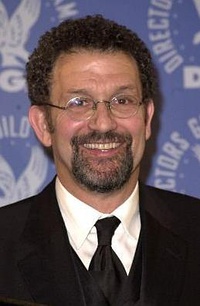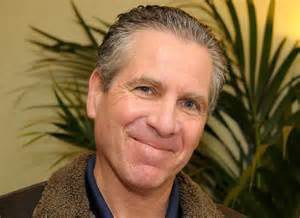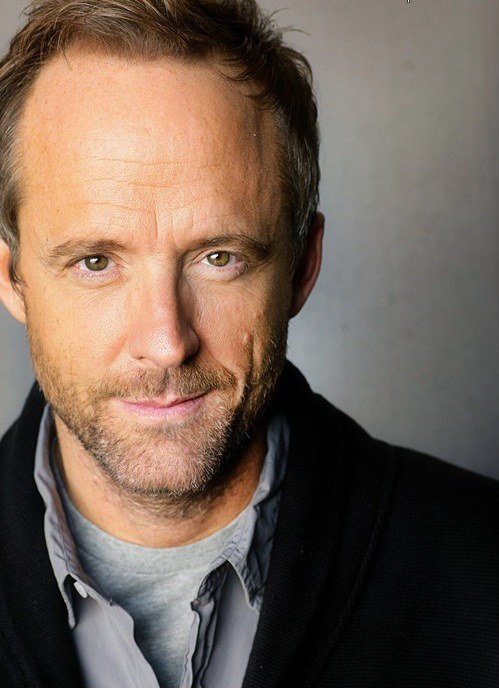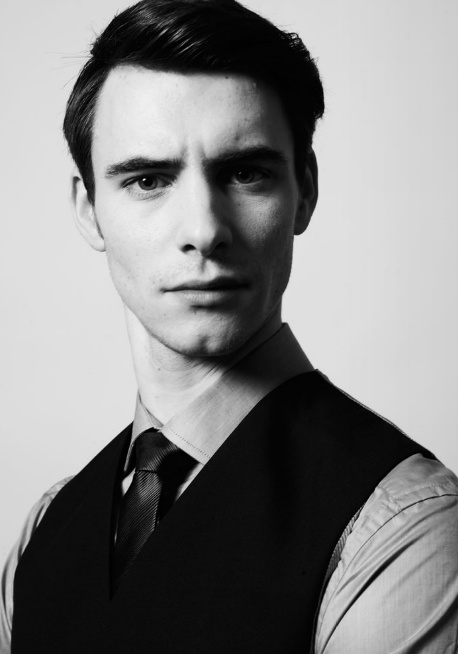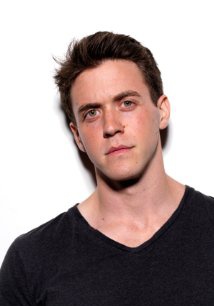曼哈顿计划 第二季 Manhattan Season 2(2015)
简介:
- 上个世纪4 0年代初,美国在新墨西哥州洛斯阿拉莫斯秘密进行了世界上第一颗原子弹的研制。本剧聚焦投身于这场科学研究中的科学家们——他们才华横溢,却也遍身缺陷。除了要与时间竞赛,还要艰难地在秘密、谎言 和他们身后脆弱的家庭关系间寻找平衡。
演员:
影评:
这部剧正如同字幕组翻译那样,风格既有历史感,也题材新颖,虽然科学家的研究探讨比较少,主要题材偏重于科学家私生活以及人伦道德观念探讨,但是还是不错的一部美剧:
在广袤无垠的荒漠上,一个巨大的秘密即将展露于人世间。1945年初,优秀的科学家们彻夜无眠。他们的工具——宇宙最基本的法则。他们的目标——仅仅是为了世界的永久和平。这原本是神明都难以完成的庞大任务。可他们却不是神。他们是凡人。他们是芸芸众生中的一员。他们有希望和梦想,有需求和欲望。他们对全然不可知的未来有恐惧和担忧。他们是我们所盼望的即将来临的历史的缔造者。历史往往不在于发生了什么,而在于记录了什么。谎言陈列纸上,墨迹一干,即成真相。这就是在这片宁静的沙漠中的历史,伟大学者的成就会被他人以荣誉为名窃取,他们的牺牲会被如瓦砾般忘却。毫无瑕疵的故事会将伟人描述成教科书式的人物,一个我们愿意倾尽所有,努力成为的榜样。但那些故事都是虚构的神话。而这,在我看来,才是最真实的故事。它并不平凡,其中鲜有完人。这是一个关于不可知的未来的故事,所有这些蜿蜒曲折会让我们一步步走向明天的世界。
From this expanse of solitude, a great secret is soon to be revealed to the whole of man. At the dawn of 1945, great minds toil sleeplessly. Their tools -- the very principles of the universe. Their aim -- nothing less than a lasting peace for the world entire. It would be a hulking task for a deity. But these are not gods. These are mortals. These are men. They have hopes and dreams, needs and desires. They have fears and misgivings for what the future may hold. They are the makers of a coming history we are all headed toward. History is too often not what happened, but what was recorded. A lie set down on paper with wet ink becomes a truth when dry. Such is the case of this history, here in the quiet desert. Here we find men whose achievements will be snatched for the glory of others, whose sacrifices will be forgotten as detritus. The cleanest telling would draw one great man in whom we could find a teachable narrative, an exemplar of what, should we give it our all, we could become. But those stories are myths. This is, as best I understand, that honest story. It is not simple, and few emerge untarnished. It is a story of the unknowable future and all the gnarled turns the present takes on its journey toward the world of tomorrow.
小时候读《恐惧的总和》,觉得汤姆克兰西对核弹引爆的那段描写特别无聊晦涩——又是聚变增强。又是中子反射、裂变代数之类的,整个核爆炸几百纳秒的过程硬是说了一章,初中的时候跟逼看不懂。直到掌握了一些核物理知识以后再看,觉得精彩绝伦!于是在知乎,谷歌上查“二相弹”的设计资料,刚好知乎上有个人贴出了本剧的截图。 从第一季追到第二季,我的感觉是本剧不论从史实的演义和时代的还原、对人性的表现到演技都是一流水准。 我是边查资料边看的,frank winter的原型就是后来T-U构型里的“T”——“氢弹之父”泰勒。(U是乌拉姆) 在看这个剧之前,我是一个自以为是的历史军事迷,觉得自己知道的挺多。 诺依曼,乌拉姆等人为了模拟冲击波和中子在核弹内传播的方式时所使用的蒙特卡洛算法(第一季里各种一算算几周的那种工作)——是在没有电子计算机的时代发明的第一种有限元模拟算法。现在的大多数工业软件还在使用 现在我还知道,CNN拍的冷战纪录片讲到过曼哈顿的意义,frank那种一厢情愿想把核弹扔到无人区来吓尿日本的做法,很可能无法在战后建立稳定的核威慑。查理是对的,只有亲眼见过了魔鬼的威力,大家才会乖乖的不惹事。这点可以类比一下《三体》里的剧情。 未达临界的核装药电离辐射很低(比如稳定的贫铀和钚,只要不吃下去,揣一块儿玩一年都没事),钚没有毒.....什么是电离辐射,它损害人体的原理是什么....手机电脑发出的辐射根本不包含电离辐射,那些防辐射商品除了碘片都是为了骗你钱....等等等等 看了这部美剧,能联想到很多自以为熟知的东西其实一无所知,不要把自己仅仅局限在自己原来的那点爱好里,而且低调做人肯定有好处。感谢那些做出决定把核弹扔到广岛长崎的人,谢谢导演和编剧,还有所有辛勤的制作人员们。在下受益匪浅! 总之,Manhattan 是很喜欢的一部剧,可惜第三季被砍了,这部剧题材虽然在二战期间,故事需要你慢慢品味,这里面的角色颠覆性也是非常大的,可能会让你改变复对奥本海默认知,但是更能让你看到科学家不为人知的另一面故事。
- 我以为 S02E05 中,记者 Lorentzen 对 Liza 说的独白,所谓曼哈顿计划(Manhattan Project)的官方正史(翻译部分参考人人影视的字幕)很是恰如其分:
在广袤无垠的荒漠上,一个巨大的秘密即将展露于人世间。1945年初,优秀的科学家们彻夜无眠。他们的工具——宇宙最基本的法则。他们的目标——仅仅是为了世界的永久和平。这原本是神明都难以完成的庞大任务。可他们却不是神。他们是凡人。他们是芸芸众生中的一员。他们有希望和梦想,有需求和欲望。他们对全然不可知的未来有恐惧和担忧。他们是我们所盼望的即将来临的历史的缔造者。历史往往不在于发生了什么,而在于记录了什么。谎言陈列纸上,墨迹一干,即成真相。这就是在这片宁静的沙漠中的历史,伟大学者的成就会被他人以荣誉为名窃取,他们的牺牲会被如瓦砾般忘却。毫无瑕疵的故事会将伟人描述成教科书式的人物,一个我们愿意倾尽所有,努力成为的榜样。但那些故事都是虚构的神话。而这,在我看来,才是最真实的故事。它并不平凡,其中鲜有完人。这是一个关于不可知的未来的故事,所有这些蜿蜒曲折会让我们一步步走向明天的世界。
曼哈顿计划所制造的是世界上从未存在过的武器,这不是在知晓可行的情况下重新构建这一切,这是彻头彻尾的未知区域。人们的恐慌不仅仅来自纳粹德国和二战本身,同样来源于这一从未出现在人类历史上的怪物,他们不知道它会如何重新构建战争与和平。而参与其中的科学家们,同样暗流涌动:美国军方对亲苏的 communist 心怀芥蒂,时刻提防着另一个超级大国;而来自欧洲的学者们各有各的算盘,“为了你的国王与国家(for your king and country)”。不同政治力量之间的斡旋,伴随着对毁灭性的新生事物的恐惧,以及上世纪中叶的历史局限性(性别、族裔、性取向),疯狂而极端的环境下人性会如何演绎?
Sid Liao 之死
剧中持续最长的冲突,是 Frank Winter 领导的内爆组的原始成员 Sid Liao 之死,剧中唯一的华裔。Frank 以此保住了内爆组,Sid 的家庭自然是毁了,他的同事们的不满以各种形式发泄:高傲的 Paul Crosley 给 Sid 的亡妻写信,仅仅署名 G22,信却还是被留在了山上;Jim Meeks 顺势被推成了苏联间谍,在泥淖里越陷越深;最终搭上了 Fedowitz 的新婚妻子的性命。非常年代短短几年的时间足以改变其中所有人的人生轨迹,大家原本汇聚到一个点,却又不可逆的四散开去,直至消逝。
Oppenheimer 的疯狂
再如 Oppenheimer,这位以“锋芒毕露”被杨振宁老先生拿来跟邓稼先对比的曼哈顿计划领导者,剧中则是“Oppenheimer is a master of bureaucracy. ” Oppie 在各种传记中被念叨的故事,可是当年在 Cambridge 对某位助教不满,直接在对方桌子上放了个涂了氰化钾的苹果。而剧中的 Oppie 则是带着强烈个人风格的世故圆滑,诸如和面对种种事务束手无策的 Charlie Issacs(看照片,原型大概是“氢弹之父” Edward Teller?)说某位地方法官喜欢阉马的过程。不过,剧中 Oppie 与那位旧金山神经错乱的 communist 的婚外情,史上确有可查;对比和总统建议曼哈顿计划的 Albert Einstein的苏联女友(一位苏联雕塑家的太太),后被证实是克格勃的间谍;不知道当年的情报机构是不是已经抓狂了。
Frank Winter 与 Liza
回过头看,Frank Winter 仿佛是这一系列疯狂与偏执的始作俑者,尚在 Princeton 的他对德国人的进展惴惴不安,鼓动 Albert Einstein 向美国总统建议制造原子弹。而在妻子 Liza 的帮助下逃出监狱后,他意识到德方的进展只是政府为了是他们加快进度的幌子,想一手阻止恶魔的诞生。Frank 和 Liza 几乎是我在整部剧中最喜欢的学术伉俪,S01E01 夫妇两人在集市上偶遇的场景堪称惊艳:Liza像个植物学家那样,质疑士兵山上不能种玉米的结论,士兵反唇相讥并不仅仅因为丈夫是科学家她就是科学家;结果突然现身的Frank,突然来了句“但是巴纳德学院的四年和植物学PhD足以说明”,士兵哑口无言。两人对话:
“大部分妻子都巴不得丈夫能离开一晚上。”(You know, most women would kill for a night off from their husbands.)
“大部分妻子都知道丈夫在做什么。”(Most women know what their husbands do at the office.)
“我不是大多数。”(I'm not most women.)
“你还真是与众不同。”(You certainly are not.)
保密规定使得 Liza 几乎中断了她的学术生涯,要知道剧中她是极具天赋的植物学家——Niels Bohr在酒吧里一度以为她是 Frank 的第二任妻子——Frank 曾对 Bohr 说,如果自己能参加 Nobel Prize的颁奖典礼,那一定是因为妻子的缘故。她试图在山上继续她的学术生涯,但是屡次以失败告终,Frank 的偏执让内爆最终存活下来,可数次身陷囹圄也把 Liza 深深地卷入了这一系列漩涡之中。
Frank 和 Liza 之间相互救赎的故事几乎是充满温情。早年 Liza 由于家族中遗传的精神疾病被推入了精神病院,和一群真正的精神病人们跳交谊舞。Frank 当着医生的面,“我收到了几所学校的 offer,我倾向于 Princeton,不过这取决于你”,Liza 说这是你的 career,Frank 却说“他们都愿意为你新建实验室,你没有疯,疯的是这个地方”。作为对比的是,后来 Frank 为了保住曾在瘦子组的 Charlie Isaacs 身陷囹圄,Liza 为此多方求助。甚至找到了自己大学时代的情人——拿过普利策奖的记者 Lorentzen,并在友人的帮助下通过 Einstein 联系白宫救出了 Frank。
大概是出于科学家们可笑的责任感吧,Frank 觉得自己又成了唯一一个能把恶魔关到盒子里的人。可最终 Frank 把车停在镇子的门前,说当初没有对 Liza 道出实情的原因,是他知道 Liza 会试图阻止他。Liza 选择了支持他,最终卷入了两次试爆前后的一系列风波之中:Frank 通过种种手段给 Charlie 拿到了讨论原子弹使用权的一席之地,可最终欺骗与背叛把 Charlie 推向了另一端——在喧闹的都市而不是无人区投下原子弹,让恶魔永远地震慑人间。
Manhattan 是我一直很喜欢的一部剧,可惜第三季被砍了。“历史往往不在于发生了什么,而在于记录了什么”。对于具体的个体来说,生逢战争年代颠沛流离实属不幸。可对于故事的读者,只有在矛盾与冲突中跌宕起伏的情节才会引人入胜吧。而 Manhattan 却又不仅仅如此,它还把其中的参与者还原为人。也许没有什么人是真真正正的教科书式的人物,恐怕真实的故事中鲜有完人,毕竟,大家都曾是芸芸众生中的一员。 The show has some of the most ambitiously creative depictions of scientists I've seen in a work of fiction. This alone qualifies for the five-star. The speech by Frank mid-season about why continuing to build the bomb was evil, right before FDR died, and the one given by Charlie in the penultimate episode as a reply, about why a demonstration of evil was necessary, are some truly powerful writing.
Some flaws:
1. The mixing of real and fictional characters can be a bit bizzare. The show did not seem to figure out what to do with the real larger-than-life character of Robert Oppenheimer. There's plenty of biographical material to make up for it now. Let's hope Christopher Nolan does a good job.
2. The character of Liza Winter, Frank's wife, is a creative failure. You can tell that the writers tried to give her story, plenty of lines, plenty of screen time, but it just didn't work. It also did not help that they cast a British actress with a half-baked American accent for the role. I have a good ear for stuff like this. More of a curse than a blessing.
3. In fact, Liza ties in to a bigger problem: although Helen Prins and Frank's daughter had some interesting moments in the show, overall the female characters were just not written well. I understand the creative choice to make women interesting in a period drama by focusing on how some are finding ways to independence and feminism, but there seems to be a lack of imagination as to what those ways can be. Mad Men has been done before, and we don't need another one.
4. For all the talk of "The Gadget," the clearly not-so-cheap set and props, the show never really showed us that many gadgets of the era. For example, the "IBM machines" they kept referring to during the first season; even the desert itself, surely could've been featured more to have some say in the broad theme of "man and nature," right? I don't know, it could be that I associate the New Mexico desert a bit too much with modern classics like Breaking Bad and Better Call Saul.
Show creator Sam Shaw did say he knows what story a third season would tell, but it also sounds like he does not expect there'll ever be a chance for it. I hope after he retires at a ripe old age, maybe he can turn it into a novel?
- 我觉得 Oppenheimer 是整个剧里最悲剧的一个人。所有人都盯着自己的一个视角,貌似都有着自己的坚持。而 Oppie 则是看着全局,纵使他有一万个不愿意,在她女朋友被谋杀后他仍然能够照顾大局。Oppie 作为曼哈顿计划的灵魂人物,没有他就没有按期的计划,没有政府的支持,没有科学家的协作,却在剧中被表现的像是一个被人利用的工具。
还有Danial London 的眼神表现的如此深邃和令人心碎。
为什么如此有才华又深谙社交的 Oppie 要承受这么多的苦难啊。没有这些苦难也就没有这么光辉吧。看过伟人的经历后,就觉得吧,做个平凡人也好。再一想,管他妈的,爱咋滴咋滴,给自己活一辈子。

